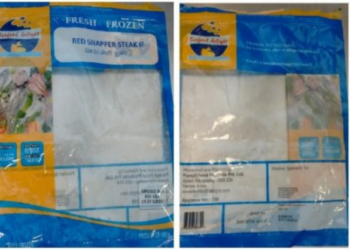By Brett Hoopingarner, Director of Underwriting, Sentry Insurance and Chris Palmer, National Sales Director, Sentry Insurance
Key Takeaways:
Proactively manage business risks through robust QA/QC and product recall plans to prevent losses and protect your brand’s reputation.
Ensure your insurance coverage is adequate and up-to-date, including umbrella, product recall, equipment breakdown, and cyber insurance policies.
Review and update your insurance policies annually to account for changes in your business and the evolving risk landscape.
Even the strongest food processing businesses are vulnerable to recalls, adverse weather, cyberattacks, and other increasingly common business interruptions.
Whether it’s a listeria outbreak that hospitalizes dozens, or severe weather that damages fruit and nut crop production leading to millions in agricultural losses, food processing operations can easily be tested by major incidents beyond your control. With the cost of bodily injury claims and class-action lawsuits on the rise, unmitigated risks can have devastating financial and reputational impacts on your brand.
As you review and reassess your insurance policies — from product recall to business interruption and umbrella coverages — ahead of your 2025 renewal, you’ll want to do two things. One, take a proactive approach to risk management to reduce potential losses and two, make sure your business is not underinsured. Both will help safeguard your business from whatever lies ahead.
2 key ingredients to managing business risk
Lower your operation’s risk with proper prevention and preparedness. Start by reassessing two key operational plans: a QA/QC plan and a product recall plan. Then ensure you’re training your team to follow them, diligently.
1. Maintain a formal QA/QC plan
Food industry regulations often mandate quality assurance and quality control (QA/QC) plans. But even if you already have one, it needs regular maintenance. Audit your plan frequently, update controls and policies as necessary, and train new hires on QA/QC plan compliance.
Power outages threaten food processing businesses as stronger storms become more frequent and happen in less expected locations. Weather events cause not only property damage — they can also affect your product during power outages. Ensure you have procedures in place to prevent food spoilage. For example, do you have backup generators? If your operation loses power and has no backup, establish controls to determine how long your product will remain safe before it needs to be discarded.
Make sure your QA/QC plan accounts for every conceivable scenario to help prevent a loss. If you do incur a loss, it’s your insurance coverages and their limits that you’ll rely on to prevent a financial hardship. More on that later.
2. Develop a product recall plan
Recalls in the food industry — from contamination to labeling errors — are unfortunately all too common. Having a plan in place can prevent these issues from escalating while protecting your brand’s reputation.
An effective product recall plan focuses on the who, what, and when of managing a recall. Decide who is in charge after you discover an issue warranting a recall. Detail what those steps look like and how soon they should happen.
Note: The faster you discover and respond to a product issue, the better you’ll protect your bottom line and reputation.
Key responsibilities should include stopping production, notifying customer suppliers, and complying with regulatory requirements. If customers suffer harm and sue, their attorneys will consider how quickly you responded and how well you followed your established recall plan. That, and they’ll look into your QA/QC plans and how well you followed those.
In every recall, your business’s reputation is at risk, too. How well you respond to and manage a recall can impact your future ability to put product out in the market.
Product recall insurance is a critical part of risk management, though many food processors don’t have it. Work with your agent or insurance carrier to determine the right coverage for your business to ease the impact of any future recall.
Portion your coverage just right
The litigation environment in the U.S. is driving up the cost of doing business. A business’s liability risk increases with each new nuclear verdict — a jury award exceeding $10 million. That’s one reason it’s important to reassess and right-size your coverage before you renew your insurance policies this year.
Doing so will ensure your business remains properly protected in the event of a claim or lawsuit. Here’s an overview of critical coverage for food processors in 2025:
Umbrella insurance provides additional liability coverage beyond existing policies that already cover property damage and bodily injury such as employer’s liability, general liability, and auto insurance. The extra limits umbrella insurance provides can be essential as verdicts for food safety lawsuits continue to trend upward and prove the limits of traditional policies inadequate.
Product recall insurance offsets costs for things such as notifications, public relations, and forensic legal work to identify the origin of the issue. It also can cover lost product and revenue. Your carrier also may be able to provide you access to public relations experts who specialize in product recalls.
Product recall insurance should be tailored to the types of products you manufacture. For example, infant formula carries higher recall risks than adult products, requiring higher coverage limits.
Equipment breakdown insurance helps you repair or replace key equipment when it breaks down or needs to be repaired quickly. A single equipment malfunction could lead to a major financial loss in the form of business interruption and product spoilage. Your policy limits should reflect the cost of replacing essential equipment and any potential lost income resulting from downtime caused by the breakdown.
Property insurance is essential for safeguarding the physical assets of your food processing business, including buildings and their contents. Legacy policies may no longer reflect the actual costs required to rebuild a facility due to inflation and increased demand for building materials and equipment. It’s wise to conduct an annual assessment of property values to avoid being underinsured when the need to rebuild arises.
Business interruption (BI) insurance is an often used but misunderstood form of business coverage. It compensates for income lost during periods when normal business operations halt due to a covered event, such as a severe storm. It can help make a food processor whole when a product recall halts production. It can cover things like fixed costs — think payroll and building overhead — and lost profits. A utility rider can provide additional protection against prolonged utility outages, such as those caused by severe weather events that disrupt power for days or even weeks.
Tip: We’re seeing it take longer to repair or rebuild when a loss occurs. It simply takes longer to get equipment and materials. Be sure to choose a duration of coverage that accounts for the time it takes to get back up and running — six months was once a common recommendation, but today 12 to 18 months may be the best option.
Cyber insurance covers costs related to a cyberattack. The liability coverage can help businesses recover and pay for costs associated with forensics, notifying affected parties, system restoration, legal fees, and even paying ransoms. You may need separate business interruption coverage, however, to protect against lost income due to an attack.Despite common misconceptions, cyber threats are a significant risk for food manufacturers today. For example, one ransomware attack on a food processor in 2023 caused $10.5 million in direct costs related to the incident.
Remember to revisit and refine your insurance recipe
Reducing your risk requires a two-pronged approach of risk management and comprehensive insurance coverage. To stay current in 2025 and beyond, manage business risk by developing and regularly assessing your QA/QC and product recall plans. Then, work with your carrier to conduct a thorough assessment of your insurance needs ahead of your renewal and update policies regularly as your business evolves and your risks change.
Together, this two-pronged approach will help safeguard your bottom line and preserve the reputation you’ve worked so hard to earn.
Brett Hoopingarner is the Director of Underwriting for Sentry Insurance. Sentry insures more than 8,000 manufacturers.
Chris Palmer is the National Sales Director for Sentry’s direct writer segment. Sentry provides property, casualty, life insurance, and retirement products to manufacturers throughout the country.















